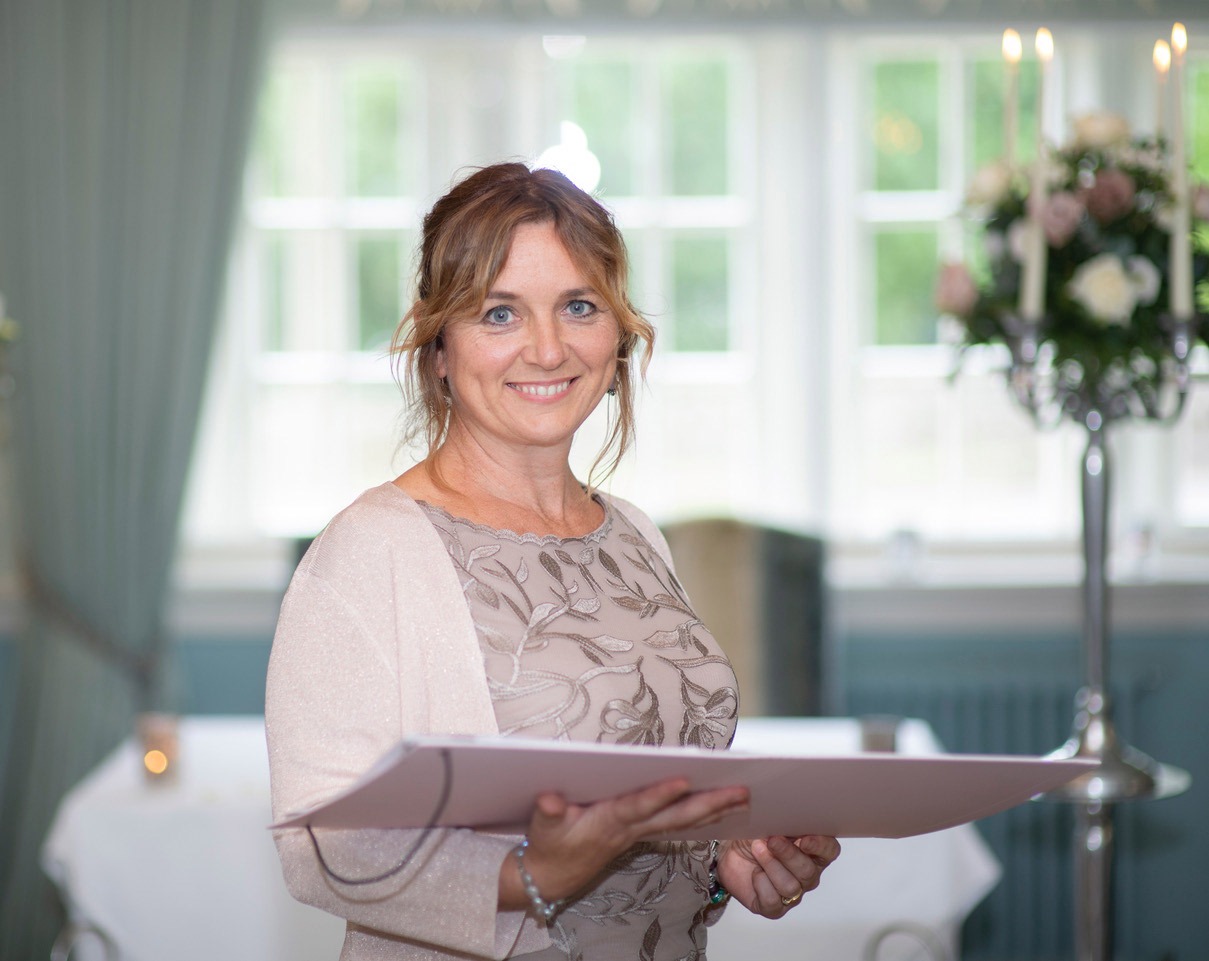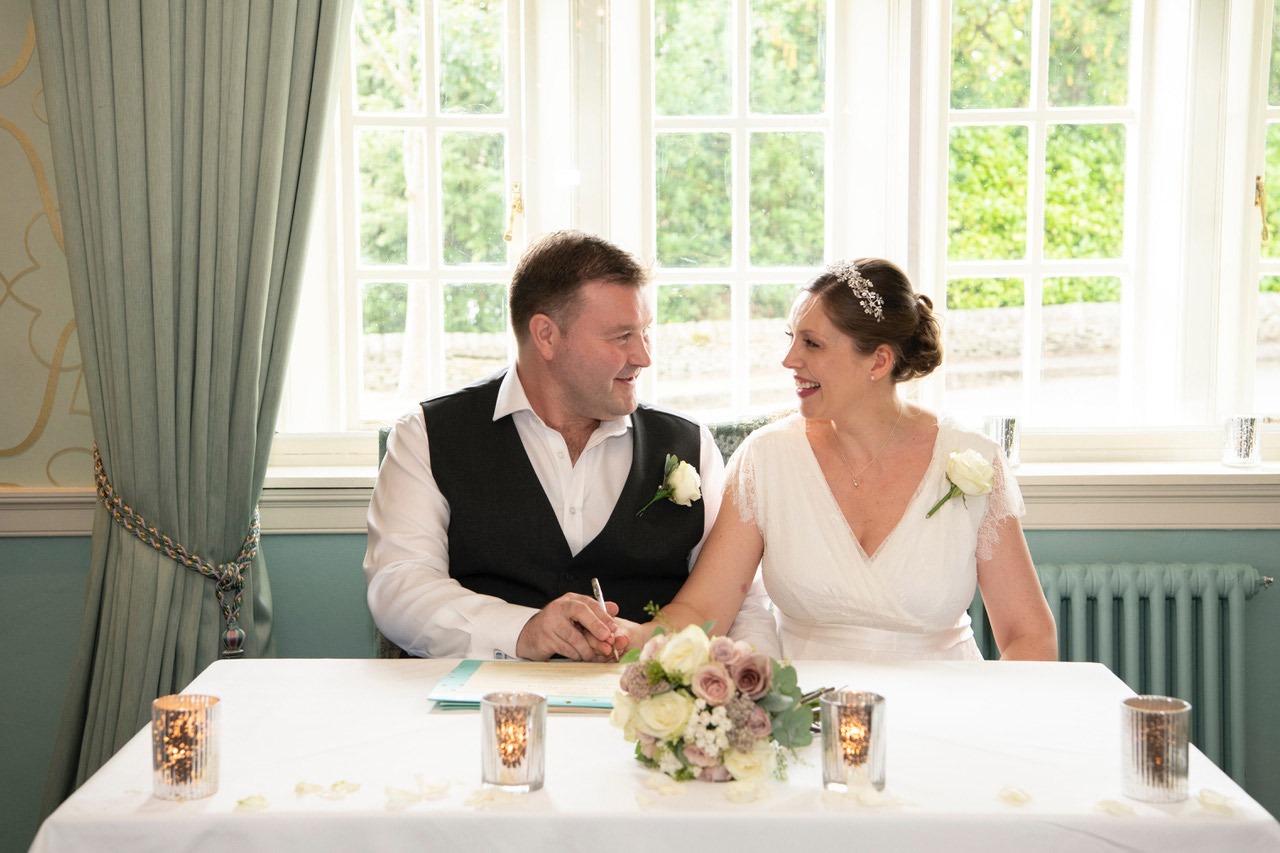Six couples are going to the High Court on 7-8 July to take a landmark challenge over the legal recognition of humanist marriages. Their case is being supported by celebrants in the Harrogate & Dales Districts who conduct humanist wedding ceremonies across Yorkshire and The Humber, and who are accredited by Humanists UK to do so.
The humanist couples are taking the case to try to compel the UK Government to change the law to recognise humanist weddings as legally recognised marriages, as is the case with religious weddings across the UK and humanist weddings in Scotland and Northern Ireland. Their lawyers will argue that the current law discriminates against them because of their humanist beliefs and is therefore incompatible with human rights legislation, which precludes such discrimination.
A humanist wedding is a non-religious ceremony conducted by a humanist celebrant who shares the beliefs and values of the couple. It differs from a civil wedding in that it is entirely personalised and reflective of the humanist beliefs and values of the couple. Humanists UK has provided these ceremonies for many decades.
In England and Wales, over 1,000 couples a year already have a humanist wedding without legal recognition. They all must have a separate civil marriage ceremony – usually at a registrar’s office – for their marriage to be legally recognised, even though it is not what they want. Couples must go through formalities twice, leading to financial strain, and distress over the state failing to recognise their humanist wedding as their ‘real’ one.
Rachael Meyer, Harrogate based humanist celebrant was fully booked for humanist weddings this year, and is already almost fully booked for 2021:
It’s no surprise that the demand for humanist wedding ceremonies is rising rapidly and so it is frustrating and completely unfair that non-religious couples in England and Wales who want a beautiful, bespoke, meaningful humanist ceremony that reflects their values have to go through a completely separate legal ceremony with a registrar, whereas religious couples do not. Marriage laws need to be updated now so that we are in line with Scotland and Northern Ireland.

One of Rachael’s brides, Helen Paddison, agrees:
We are not religious and in the planning stages, felt that the only option for our wedding day was to have our entire wedding ceremony performed with our local registry office. After running into various difficulties regarding strict guidelines with timings, limited communication and a complete lack of personal touch, we elected to have a humanist wedding. We, along with all of our wedding guests, were absolutely blown away by the beautiful ceremony Rachael created for us. She fully captured the essence of our relationship having made the effort to get to know us in the months leading up to our wedding, and our humanist wedding ceremony was truly the highlight of our day. It was a shame that we still needed to have our marriage legally registered, which we did a couple of weeks later when we returned from our honeymoon – it was a dull and impersonal experience. We were so happy that we chose a humanist wedding for our real wedding day – we will cherish it forever! It’s certainly time that they were legally recognised.
Humanists UK Chief Executive Andrew Copson commented:
Couples who have humanist weddings see that day as the epitome of their love and commitment to each other, and all they want is the same legal recognition for that as is given to every religious person in our country. We have tried for decades to address this glaring double standard. Government has dragged its heels and that’s why it’s been left to these couples to bring this case. As more and more non-religious couples choose to have humanist weddings, we need a law that works for all people who want to marry and we hope this case will lead to reform.
More about the case
- Parliament voted to give the Government the power to give legal recognition to humanist marriages in 2013 but no Government has used it. In the time since then, over 6,000 couples have been denied legal recognition for their humanist wedding, either having to go to a state registrar for an unwanted second ceremony in order to gain legal recognition, or not be legally married.
- The six couples challenging this discrimination lodged their case at the High Court in November last year. Permission for the case to be heard was granted by the Court on 2 March, with the full hearing due to happen on 7-8 July. After permission was granted, the claimants offered to negotiate with the Government over possibly settling the case, particularly in light of the coronavirus pandemic, but this offer was refused. It is now hoped that the case will lead to a change in the law in time to help deal with the huge backlog of demand for marriage services that is now occurring due to the pandemic.
The claimants are being represented by Ciaran Moynagh of Phoenix Law, Caoilfhionn Gallagher QC of Doughty Street Chambers, and Steve McQuitty BL of the Bar Library of Northern Ireland. Humanists UK is supporting them in bringing the claim.
Rachael Meyer is a humanist wedding celebrant trained and accredited by Humanists UK.
Read more about Humanists UK’s campaign for legal recognition of humanist marriages: https://humanism.org.uk/campaigns/human-rights-and-equality/marriage-laws/
Humanists UK is the national charity working on behalf of non-religious people. Powered by over 85,000 members and supporters, we advance free thinking and promote humanism to create a tolerant society where rational thinking and kindness prevail. Humanists UK provides ceremonies, pastoral care, education, and support services benefitting over a million people every year and its campaigns advance humanist thinking on ethical issues, human rights, and equal treatment for all.








[…] Source link […]